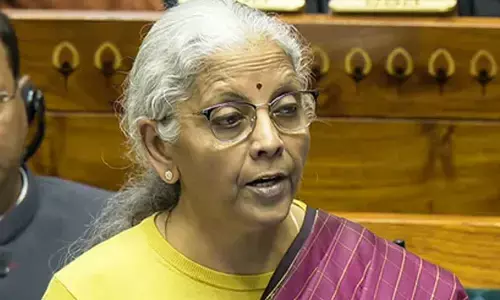After Shimla, Karnataka eyes apple production

After Shimla, Karnataka Eyes Apple Production. Enterprising people in tropical Karnataka are experimenting in growing apples, mostly cultivated in the cold regions of Himachal Pradesh and Jammu and Kashmir.
 Shimla: Enterprising people in tropical Karnataka are experimenting in growing apples, mostly cultivated in the cold regions of Himachal Pradesh and Jammu and Kashmir.
Shimla: Enterprising people in tropical Karnataka are experimenting in growing apples, mostly cultivated in the cold regions of Himachal Pradesh and Jammu and Kashmir.
Horticulture scientist Chiranjit Parmar from Mandi town in Himachal Pradesh, who is the brain behind the success of this temperate fruit in the tropics, has been providing technical know-how to growers in Karnataka.
The plantation is in the experimentation stage and its commercial cultivation is yet to take root.
Parmar said it could be done in other tropical areas like Kerala and Tamil Nadu where there is virtually no winter season and it would revolutionise India's apple cultivation.
The apple plantation in Karnataka has started bearing fruit in less than two years. Normally, it takes six-seven years in the hills, Parmar told IANS.
The first apple saplings were planted in 2011. Now more than 6,000 saplings have been planted across Karnataka, mainly in Coorg, Tumkur, Chikmanglur and Shimoga areas. All of them were supplied from the horticulture university nursery at Bajaura in Kullu.
The success has encouraged more and more people to opt for apple cultivation.
Parmar, a former horticulture expert of the Solan-based Y.S. Parmar University of Horticulture and Forestry, who experimented after seeing the successful plantation of apples in tropical Indonesia, attributed the reason for the speedy growth of apple saplings in Karnataka to the absence of the dormant phase there.
"In the hills, apple plants during winter shed leaves and remain dormant (a natural phenomenon which helps resist extreme cold). In Karnataka, there is no winter and there is no dormancy stage. A plant continues to grow throughout the year and matures in a shorter duration," he said.
According to him, a year-and-a-half-old apple plant in Karnataka can start bearing flowers. In the next seven-eight weeks, the fruits will be ready for harvesting.
Parmar said that for growing apples at any place in the tropics, the minimum temperature should not fall below 12 degrees Celsius during any part of the year and the maximum should remain below 40 degrees.
The absence of winter helps growers get two crops a year unlike the hill states where there is one crop, he said.
On planting new saplings in tropical areas, Parmar said the saplings could be procured only from apple-growing belts in the hills after dormancy was over. And these should be replanted in less than two days.
But apples grown in tropical conditions have a shorter shelf life compared to those grown in temperate areas.
Apples grown in Karnataka have a time period of 12-15 days, whereas those from the hills have a time period up to a month.
Parmar said that in Indonesia, where apple yield per hectare was 65 tonnes, 10 times more than Himachal Pradesh, the farmers have developed a technique that changes natural biology of the plant. They physically remove the leaves after the harvest.
This helps the plant bloom again after two months and the next crop is ready after four months -- which means two crops a year.
Parmar said K. Nagananda in Bengaluru has grown apples in pots in his roof garden.
Likewise, Janardhan at Tarikedi near Chikmanglur has planted apples along with areca nut.
Calistha D'Silva from Abburkatte in Coorg, who planted apple trees, informed him that the fruits tasted natural.














